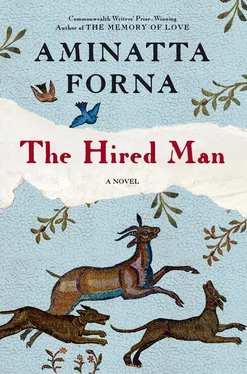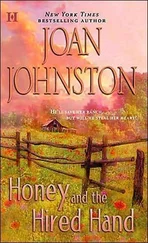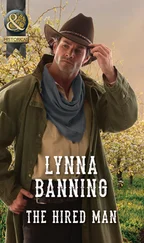‘They’re all done.’
‘Then put more beer in the fridge.’
Fabjan spoke without once turning to look at her, or indeed moving his head at all. The girl disappeared. I took the exchange to mean Fabjan was sleeping with her, which was a shame. She was pretty and it would have been pleasant to spend some time with her, all the more so if she was one of Fabjan’s. In the end it was all too much effort. It had been my pleasure just to irritate him.
I wandered home through the streets of Gost, the avenues of chestnut trees, the immaculate houses with their wooden balconies, window boxes full of geraniums and dark, gleaming windows. Front gardens full of roses: very popular this year, along with lilies. Lions on the gateposts; some people painted them yellow with brown manes. Green stone frogs crouched in the flower beds. Through the windows the blue flicker and drone of TV sets, from behind a pair of curtains: the sound of a man’s voice raised. The hotel, which had a stuffed bear in the entrance hall and a new wing, was open for dinner in the evenings. The eight-page menu included: Regional Specialities and International Dishes as though the hotel was, at any moment, expecting a large delegation from the United Nations. Outside was parked a big tour bus. The tourists spend the night in Gost on their way to the coast from Zagreb, though never more than one night. And to my knowledge they never leave the hotel, but stay inside behind a wall of pink and white oleander. Other than the few businessmen who also pass through as quickly as they can, nobody has any reason to come to Gost.
Unlike the hotel and the houses, the municipal buildings in the centre of town were pockmarked and dirty. On an abandoned building at the corner of a road, an ardent football fan had scrawled Volim Croatia Hajduk and scrawled a heart with an arrow through it. I passed the bakery. The other bakery, long gone now, had been on this same street, just a hundred metres down. At lunchtime they sold soda bread and devrek through the window. They had a retarded daughter, a Mongol, whom the boys, Andro, Goran and Miro, used to tease, imitating her tottering walk, her slow, deep voice and stupid smile. The other daughter owned a white angora sweater and served in the shop. She’d something of a reputation, as though she was compensating for the shame of her sister by being an easy lay. I used to visit their house from time to time, usually on an errand for my father, and wait in the sitting room mortified by the presence of the Mongol. But their burek had been the very best, no doubt. Sometimes, on those days I was working in town, I would buy one of their potato or spinach pies for lunch. Ever since the bakery closed there had only ever been one bakery in Gost. Someone could have made money opening a new one, Laura was right. In all the years that passed since the family went away, nobody ever did. Not Fabjan: too much even for him.
The town was silent, save for the boys in the car park of the supermarket, playing with their motorbikes; moustaches of soft sparse hair, bitten fingernails and acne scars: boys in love with their cocks, who think themselves men. Boys who have been around for ever and exist in every town, in every place in the world. I was once like them, we all were: Andro, Goran, Miro, Krešimir and me. In the end you grow out of it, or you hope you do. We grew older and the lads who replaced us hung around the Zodijak where Fabjan had had the good business sense to install a pinball machine and make money out of them.
On the bridge I stopped and looked out over the river, upon which the last of the light played itself out. I followed the trail of the water back along itself where it wound through a route five times longer than the actual distance it covered, up towards Gudura Uspomena.
Some days Anka and I go up to the pine forest to shoot birds without Krešimir. How did we begin to hunt together? I have forgotten. Probably I arrived at the house one day to find Krešimir out and Anka there instead and so it seemed natural to invite her along after the way she shot the rabbit, plus hadn’t her father bought her a shotgun with a design of a clover leaf on the stock? Soon enough I found I preferred hunting with Anka.
With Anka I shoot my first deer. I’ve taken my father’s gun without his permission. To show off, no doubt. It is an old bolt-action rifle with iron sights and we practise with it on a home-made target at fifty metres. As the gun belongs to me, or at least my father, I get most of the shots. On the way home we see a small bachelor herd feeding on the edge of the wood, drifting across the hillside towards us, and the wind coming straight up the hillside carries our scent away and into the pines. Anka and I begin to stalk them, not seriously, we’re still playing at being hunters. Sure enough the herd soon becomes aware of us and begins to move away and we, because it is the end of the day and we have time on our hands, we lie back on the grass and watch a lone crow cross the sky.
A buck, separated from the herd, appears on the brow of the hill about forty metres downhill of us. He is young, concerned principally with reaching his companions and hasn’t seen us lying in a shallow dip in the hillside between the two positions. He comes and keeps coming. Anka and I watch. Any minute I expect him to make a break for the safety of the herd, but he does no such thing. We are motionless, sharing a single thought. Slowly I train the sight on him. The breeze blows straight into my face. I aim fractionally ahead of him so that he walks straight into the bullet. The herd flees. We watch the buck: the moment of hesitation, the buckling of his back legs, the final lurch forward. Together we drag the carcass back to my house, where for the next week my father hugs me and brags to anyone who’ll listen. He couldn’t care that I took his gun, because that sin has been redeemed. And that I shot the buck out of season bothers nobody.
A yellow light. A surge of energy and the taste of electricity. The wind that day came from the south and arrived in the afternoon. A sudden rattling of the shutters and then the rain. I’d been watching the sky all morning as I prepared the outside walls for whitewashing. Grace was working on the fountain, Laura had gone to the supermarket and Matthew was sitting at the kitchen table eating a late breakfast, where Grace and I joined him.
Minutes passed, Grace said, ‘Well this isn’t much fun.’
‘Tell me about it,’ muttered Matthew.
‘It will be over in fifteen minutes,’ I said. ‘Maybe if you go and look out of the window you’ll see something.’
Grace stood up and crossed the room. For a few seconds she stood looking out of the window and then, ‘How did you know that would happen?’
I only knew what everybody else around here knows, like when the rain is coming and when the wind will change, when to expect snow and which winter months are best for picking rujnika mushrooms in the pine forest. The western wind is carefree and light. The northern and southern winds are troublesome. The bura is the fastest wind in the world, so cold that at Karlobag the sea freezes: white horses are turned to ice, frozen in motion like characters in a fairy story; in the streets signposts snap like straws. This southerly summer wind arrives, as always, with all the fanfare of a Gypsy caravan driving into town with a new spectacle for the townsfolk. First an empty stage. The wind dies, the sky is clear. Across the stage thunder gives chase to lightning. Up come the lights and the special effects: sunshine and transparent ribbons of rain. The Gypsy magician swirls his cloak.
‘What is it?’ asked Matthew.
‘A double rainbow,’ said Grace. ‘Come and see.’
Читать дальше












